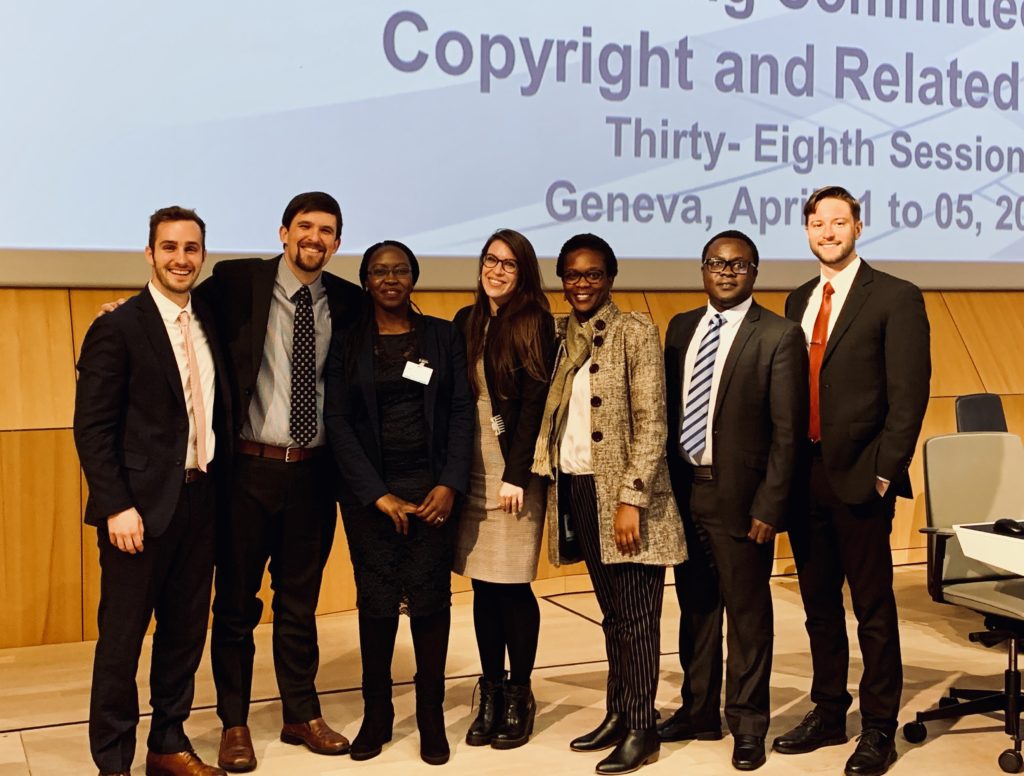On October 16, 2019, the TLPC filed a brief of amici curiae in the matter of Georgia v. Public.Resource.Org, a case pending before the U.S. Supreme Court of the United States involving the copyrightability of annotations to state law. The TLPC filed the brief of amici curiae on behalf of print disability advocate organizations American Association of the Deaf-Blind, American Council of the Blind, Burton Blatt Institute, Disability Rights Advocates, National Federation of the Blind, World Institute on Disability, and individual print researcher and advocate Sina Bahram. The brief addresses concerns about Georgia’s failure to provide its laws to those with print disabilities in accessible forms as required by Title II of the Americans with Disabilities Act. As part of its wider project to promote free and open access to the law, Public.Resource.Org has undertaken to make the law accessible to those with print disabilities. The brief also raises concerns about Georgia’s use of copyright law to quash efforts to provide the accessible information which Georgia has itself failed to provide and underscored that making works accessible to those with disabilities is an uncontroversially non-infringing fair use.
The FTC’s Right to Repair Inquiry and the Copyright Office’s Section 1201 Proceedings
(by Blake Reid, TLPC Director and Kayla Enriquez and Sarah Rippy, Colorado Law 2Ls)
The Federal Trade Commission is conducting a workshop entitled Nixing the Fix, which is aimed at exploring issues around the right to repair. In our submission to the Commission, we have submitted a curated archive of the record developed during the Copyright Office’s various proceedings that have raised repair-related issues, including its 2012, 2015, and 2018 triennial reviews of exemptions from Section 1201 of the Digital Millennium Copyright Act, its 1201 Policy Study, and its Software-Enabled Consumer Products Study.
TLPC Presents on Disability and Copyright at WIPO SCCR/38
(by Colleen McCroskey, Colorado Law 2L)

TLPC student attorneys Colleen McCroskey, Kevin Doss, and John Schoppert, along with TLPC Director Blake Reid and colleagues from the University of Cape Town, including Prof. Caroline Ncube recently presented to the Standing Committee on Copyright and Related Rights (SCCR) of the World Intellectual Property Organization (WIPO) on the intersection of copyright law and disability.
Continue reading “TLPC Presents on Disability and Copyright at WIPO SCCR/38”Section 1201 Security Research Exemption
On October 26, 2018, based upon the recommendation of the Acting Register of Copyrights, the Librarian of Congress adopted exemptions to Section 1201 of the Digital Millennium Copyright Act (DMCA), which prohibits circumvention of technological measures that control access to copyrighted works. On behalf of its clients Ed Felten and Alex Halderman, and working together with the Center for Democracy and Technology, the TLPC helped secure a set of important changes to a pre-existing exemption for good-faith security research, expanding the ability for security researchers to legally test device and system software for cybersecurity vulnerabilities without violating the DMCA and risking criminal liability.
Important caveat: this post is intended only as general information and does not constitute legal advice. If readers wish to utilize the new exemptions granted by the Librarian, they should consult independent legal counsel before doing so.
TLPC Releases White Paper on Intellectual Property Issues at the FCC
In this white paper, TLPC student attorneys Colter Donahue and J. Parker Ragland outline steps that the FCC can take to avoid having rulemakings and other policymaking initiatives delayed or negatively affected by intellectual property issues. In recent years, the Commission has faced several situations, including in the context of 9-1-1 services, telecommunications relay services, and set-top boxes, where intellectual property issues have arisen and affected proceedings. The white paper urges the Commission to develop adequate expertise in intellectual property law and to proactively anticipate and address IP issues to avoid these situations in the future.
